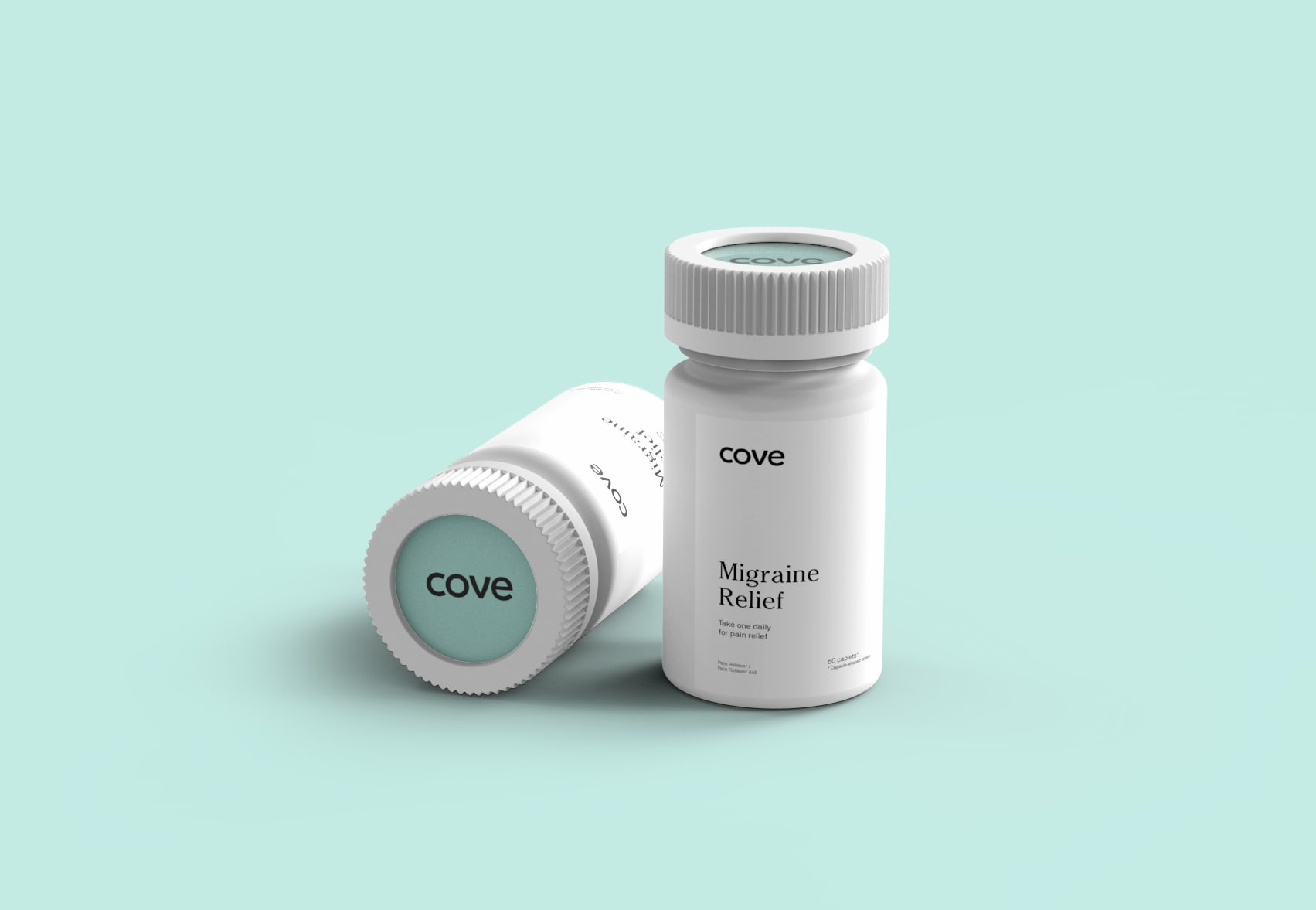Photophobia. It’s not just an odd (and slightly tongue-twisting) word to say. Approximately 85% to 90% of migraine patients experience this symptom—an extreme sensitivity to artificial and natural light—before and during an attack. In fact, it’s so common that it’s actually listed as one of the criteria used to diagnose chronic migraine.
The portion of the brain that processes light (the visual cortex or vision center) is much more sensitive to light in people who experience migraine, but it’s not just any light.
What type of light makes migraine worse?
“Blue light, such as that emitted by a computer and other digital screens, increases the sensitivity in the vision center of the brain much more compared to green light,” explains Cove advisor and migraine expert Dr. Philip Bain. And a migraine study done at the Comprehensive Headache Center at Beth Israel Hospital showed that even blind migraine patients experienced worse headaches when exposed to blue light.
It’s not just blue light that causes problems either. “All color-associated light except green light makes sensitivity worse,” says Dr. Bain.
And to clarify: Blue or green light does not refer to the type of pretty, colored lights you see around the holidays. We’re talking about the color of the wavelength which you typically don’t notice unless you’re sensitive to it.
Has there been any research into how light affects migraine?
Researchers were intrigued by the findings that different wavelength colors yielded different results. If migraine patients didn’t react as strongly to green light, what if they found a way to filter out all wavelengths except for the green ones?
So, they experimented, and the results were encouraging. When they only allowed a narrow band of green wavelength to get through, headache pain decreased substantially.
Due to this outcome, researchers created “a light bulb that emits only low intensity green wavelength light.” But until that bulb is widespread, what should migraine sufferers do?
Well, what should I do?
The answer is quite simple: Find good sunglasses. And we don’t mean expensive sunglasses, but a specific type.
Utah neuro-ophthalmologist Dr. Bradley Katz, founder of Axon Optics, developed “migraine glasses” called FL-41 glasses. These can reduce headache frequency, duration, and severity if migraine sufferers wear them regularly outside and when they’re sitting in front of screens.
FL-41 glasses have been around since the '90s, and newer versions block not just blue light but also other wavelengths that can trigger light sensitivity like amber light. Other innovations include letting in more of the good green light (so it's less like you're wearing sunglasses all the time) and limiting the color distortion that can come with blocking certain wavelengths.
Another new type of migraine glasses, Avulux lenses, filter out blue, amber, and red light to help manage light sensitivity.
If you’re looking for a more affordable option, Dr. Bain adds that dark polarized sunglasses are a good option, too. They can “successfully block out bright lights and eliminate glare, which can decrease attacks in migraine patients.”
How do I choose the right migraine glasses?
To make sure the glasses you choose are actually polarized, start by checking the label. You’ll want them to be rated UV400 or greater. But to be sure, you can also try the computer screen test. Or, you can put them on and look at any digital screen. If they’re polarized, you should see a rainbow over the screen.
If you want to take light protection one step further, try wrap-around frames, which block brightness and glare not just from the front, but from the side (your peripheral vision), too. While these might not be the height of fashion, if it keeps your headaches away, it could be worth it.
All of this is to say that if you suffer from migraine, try wearing glasses more. Just make sure they’re Avulux, FL-41, or dark and polarized. There is one catch: don’t wear them all the time.
“Too much of a good thing can cause problems,” Dr. Bain says.
Migraine glasses are a great preventive treatment option. By blocking super bright light and filtering out the type migraine sufferers tend to be more sensitive to, you may be able to avoid an attack (or at least experience a less painful one).
The information provided in this article is not a substitute for professional medical advice, diagnosis, or treatment. You should not rely upon the content provided in this article for specific medical advice. If you have any questions or concerns, please talk to your doctor.
Photo by Jon Asato on Unsplash


